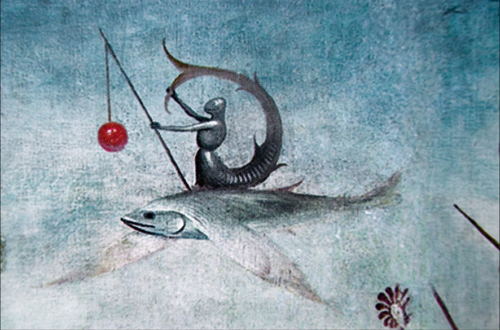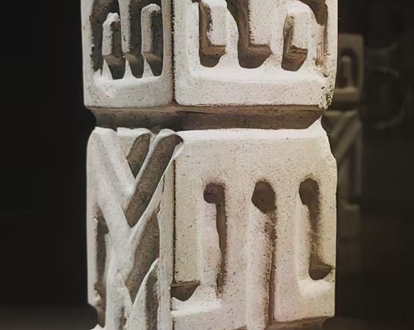febrero 17, 2023
Relational and Social Constructionist Consortium of Ecuador (IRYSE)
Diego Tapia Figueroa, Ph.D. y Maritza Crespo Balderrama, M.A.
We base ourselves for this series, on this thesis, from which we extract -adapting them- the proposals and invitations to a different relational position for the construction of the process of transformative therapeutic dialogue.
How are social constructionism and collaborative and dialogic practices useful for the relational co-construction of space for therapeutic training and supervision? Tapia Figueroa, Diego, Thesis (2018) for the Ph.D. with the Free University of Brussels (VUB) and the TAOS INSTITUTE of the United States.
«The instant we utter a word, the instant we express ourselves, we become – we are».
Tom Andersen (2005)
Postmodern therapeutic practices
It is about the complexity and uncertainty of understanding that each conversation is a journey in which we will be transformed, and we will find the otherness that inhabits us and relates us to the voice of what is not yet known and created together. Language humanizes us and creates forms, styles, and life projects. How do we build, from these languages, new relational possibilities? How do we generate liberating social processes, with liberating words, in processes of social construction?
Harlene Anderson (1999, p. 267) clarifies it: «Language is the vehicle of our existence and our sharing with others and with ourselves… We act and react by language, we use it to relate, to influence, and to change.»
We manage to understand, and in doing so we understand and legitimize, when we participate in the construction of the different fields of meaning and become responsible, with the other, in the joint generation of new meanings.
In this sense, Manuel Cruz (2005, s.n), a Spanish philosopher, argues:
«Become who you are,» says Nietzsche. Supreme affirmation: that the old, decadent, conventional, ignorant, oppressive that is in your spirit, die, so that what is alive in you, live authentic and free. The cost: dying several times: that everything that makes us slaves dies, prejudice, the ideology of guilt, sin and punishment. May alienating repetition and foolish repressions die many times, so that our vital spontaneity may flourish. To live in the joyful pleasure of joy without fear, to become who you are or what you are.
It is a permanent learning process that involves life, enriched by this social-constructionist stance and collaborative, dialogic, and generative practices, because it is also positively contagious in relational contexts, stimulating authentic and responsible voices to emerge in these interrelationships.
We relate from the dialogue with others (with an aesthetic sense, as opposed to vulgarity and prejudices), with respect and affection (sharing); we learn from his free words, from his silences (from his mystery).
It is about recovering and enhancing our capacity for wonder, to marvel at every encounter, at every conversation; of the pleasure of transforming ourselves together, because this is how we coordinate it and because this is the way we take care of our relationships. We do it from a position of permanent irreverence.
Gianfranco Cecchin (1998, pp. 333-345) states:
By irreverence, I mean the constant questioning and permanent curiosity about particular models, beliefs, and forms of practice. The irreverent therapist is always avoiding the certainty of ultimate truths… To adopt the position of irreverence is to be slightly subversive with respect to any reified truth.
In this position of irreverence, we will be able to value our achievements by removing the character of omnipotence, with a modest attitude, which makes it possible to question, each time, those conjunctural achievements that are nothing other than truths and certainties in research processes and also in therapeutic.
Rebellion, subversion, is something that is constructed with criteria, and this means a continuous reflective deployment of questions in an exercise of permanent self-criticism, as well as a consistently argued critique of all scientific, therapeutic, or humanistic truth.
The process of joint demolition of the old stories offered and the official narratives will mean, in practice, a consistent exercise of dismantling the dominant status quo. It involves trust in the resources of those who are co-responsible for participating in the recognition, sometimes painful, that stages, cycles have been fulfilled and that there is a past that is useless to continue accepting and carrying. That it is time to confirm his death and decide his honorable burial. Letting go, it’s also a way to honor those stories. Therefore, to assume, in reflective dialogue, the need for meaningful actions that generate a different, new life.
Following Kenneth Gergen (1996), social constructionism seeks to explain how people describe, say, or make sense of the world they live in. Positivism is based on the certainty that there are general laws of science valid for all individuals, in all times and cultures. His dogmatic vision is reductionist and establishes hierarchies of knowledge and the coherence of actions. From constructionist perspectives it is recognized that knowledge responds to culture and that it is historically determined; it is the product of a social and relational context. Generalizations, both in research and therapy, become, in addition to denying diversity and being disrespectful of otherness, a straitjacket for understanding the social worlds we inhabit.
The language and its codes with which we communicate, understand, and relate are social constructions, and social artifacts, and are generated in a historical time.
If we want to understand them, it is necessary to know the context that made them possible, because they respond to a need of those who relate socially at a certain time.
Understanding each other involves getting involved and participating in relational, communicational, and language games, in social experiences that are coordinated and that allow giving meaning and cooperation and collaboration so that social life has meaning.
The impact of the particular actions of social processes does not depend on a sum of experiences or empirical results, but, rather, on the social coordination built in the interrelations that pass through different forms and relational contexts; they will depend on and evolve according to the historical time in which such coordinations are developed and the local culture that marks, guides and welcomes them.
The therapeutic process is relationship-based, and fully trusts the dialogue
Harlene Anderson (1999, p. 21), explains this complexity (reproduced in extenso):
Through conversation we form and reform our life experiences; we create and recreate our way of giving meaning and understanding; we build and reconstruct our realities and ourselves. Some conversations increase the chances; others decrease them. When possibilities increase, we have a sense of creative action, a sense that we can face what worries or disturbs us—our dilemmas, problems, pains, and frustrations—and achieve what we want—our ambitions, hopes, intentions, and actions.
It is the collaborative/generative dialogue, the dialogic action (words are acts), and the meaningful conversation, which tells us how we are and who we are; each new conversational encounter constitutes us each time as new interlocutors because unthinkable meanings arise and are generated. We are no longer those of the past conversation, we are always on the way to be; it is the becoming of being, possible only by the joint creation that gives meaning to the discourses and that allows us to understand the contexts.
We build ourselves relationally and relationally we transform.
These linguistic processes create shared human worlds, unique events in which qualitative differences emerge thanks to collaborative coordination in which those who choose to be interlocutors to generate new relational possibilities are responsibly engaged. By expanding these possibilities, conversations, while interrupted, are resumed with new perspectives, that continue and are endless.
Delivered to the conversational flow, free of pathologizing diagnoses of the expert and without the reductionisms that homologate experiences, protocols, recipes, and manuals, to calm domesticated consciences; the dialogue that is proposed to understand is such because the question that serves the consultant is born as a creative act, precisely from what the consultant himself has finished processing reflectively.
Tom Andersen (1994, p. 176), says: «… to be with the other in such a way that the other is the person he wants to be in that situation and at that moment.» Here we have the embodied expression of relational gentleness. This willingness to speak with the other, with an attitude of radical presence and novelty, manifested in a generous openness for a process of dialogue in which an authentic voice is heard, and invites its interlocutors to do the same.
We leave any paradigm of the expert or with a welfare character and give life to the relationship because the joint space of the «with» is built and it is from this «with» that different relational ethics can be deployed.
Ethics allows us to offer deep listening, capable of understanding the multiple voices present in any transformative dialogue that, when legitimized (because they are incorporated into the relational being itself), star in the dialogical process.
It also means the recognition that the resources of the consultants, and their knowledge, enrich the therapeutic process, they can imagine creative alternatives, propose new possible futures, and develop the ability to face and solve the difficulties they are going through.
As explained by Harlene Anderson (1999, p. 111) «The new perspective suggests a collaboration between therapist and client that tends to be less hierarchical, authoritarian and dualistic, and more horizontal, democratic and egalitarian… It’s a conversation between colleagues… «.
The modern conception of the therapist as the expert in fixing sick patients, with pathologies, a conception that responds to a mechanistic model of the late nineteenth and early twentieth centuries, is obviously useless, counterproductive and disrespectful. The concept of a therapist interested in asking to understand and generate different knowledge about how people engage in their relationships and with their lives establishes a qualitative difference in the production of new meanings and, therefore, in the style of social practices that are chosen.
Dora Fried Schnitman (1998, p. 27) states: «Human projects have a social settlement that already allows us to open the present towards the construction of possible futures. Becoming a human being consists of participating in shared social processes in which meanings, senses, coordinations emerge.»
The therapeutic process is based on the relationship, fully trusts in dialogue, and articulates possibilities in these exchanges, which seek the joint construction of meaning-generating meanings in the face of the complexity of relational contexts, privileging sensitivity and innovation.
The question, on the part of the therapist, and the questioning of the consultant, again and again about a fact, about a relationship, allows him to deconstruct the text of his story, as he has told it so far, validating what he considers important,
«… The important thing is the process by which one talks about something, not its content… » (Anderson, 1999, p. 134).
This relationship or therapeutic alliance that is created between the therapist and the consultant is then, mutual learning: without giving interpretations, instructions, or value judgments, or transmitting our beliefs as healing truths of what ails them.
Build creative relationships
Novelty can arise by generating new processes. We dialogue to meet those we can become in the future; after the dialogue, each question returns as a new question. From a different perspective, with a reflective attitude that builds also different practices, delivered to a relational process committed to the expansion of multiple social contexts, because novelty occurs in collaborative/generative dialogue.
With the questions and answers, we weave the dialogue into a relational interweaving of the therapeutic process. We ask ourselves (therapist and consultant) questions related to the daily life of the interlocutor. The reflective question is to confront and open what the established power, in any context, imposes and oppresses. Respect and accept what the other wants to start saying to jointly propose desirable and possible alternatives, worthy of the participants in these interrelationships.
There is no question guide. Each question results from an attempt to understand what has just been said and what has not been said; each is an element of the overall conversational process. The right questions are those that arise when one immerses oneself in the world of the consultant. They arise from paying careful attention and interest in learning more about what worries or makes you feel bad, rather than pursuing preconceived ideas about «pathologies» and hypotheses. They are questions that make the consultant and/or client feel invited to a conversation.
Words are acts and acts become -and humanize- words, carriers of meaning for their ability to evoke and summon critical reflections, in movement, in giving of new meanings, which humanize experiences, give them voice, face, possibilities, and context.
By working on different contexts, the respectful understanding of each local context was important in this research; to contribute in a practical way so that the participants of these contexts should appropriate them, and decide to initiate a process differently, from the reflections that have arisen on how to do therapy and relate to families.
In the words of Kenneth Gergen (2016): What is at stake is not repairing the mind, from a relational perspective, but relational transformation. (p. 420)
Only questions, opinions, explanations, suggestions, and possibilities are mixed in a dialogic exchange, in a language game in which there is respect and collaboration. A dance, with its pauses, its rhythm, its time.
The great writer Thomas Bernhard (1998, p. 85) said: «Intelligence is worth nothing as long as it does not become words because intelligence is everywhere. Intelligence is only worth something when it becomes a word, and rather a spoken word because it lives.»
We are beings in relationships, and we are what others narrate about us; at the same time, we become what we say to others about ourselves. This metamorphosis of senses, meanings, and construction of stories creates a multiplicity of possibilities about being with others. The perspectives in which interpretations are configured vary according to perceptions and cultural and relational contexts that say, respond, question, and transform us ad infinitum.
The therapist-consultant relationship, first of all, is a way of being in relationships, in an authentic, natural, and spontaneous way; therefore being unique for each person and each discourse. We recognize our knowledge as local knowledge, of a provisional nature, which must be challenged by the knowledge of the consultant, who is the only specialist in his own experience.
Experience shows us that the main thing for psychotherapy to be successful for consultants depends on the alliance, the relational bond, and the quality of the relationship between consultant and therapist. It is the respectful alliance, the bond of non-pathologizing trust of therapists with consultants, that matters in this process; this makes it possible to mobilize the participants’ own resources. That is, more than techniques, models, experience, prestige, knowledge, etc., what counts is the relationship between consultant and therapist (being ethical, respectful, understanding, intelligent, and responsible).
In the constructionist perspective, the committed search for difference involves the different conception of the dialogic encounter. It is not a hierarchical exchange between expert knowledge and a patient to be diagnosed. It is built as a privileged place, in which each consultant is a unique, diverse, special universe. And there are no other equal universes, which deserve to be ignored and disrespected for their particularity.
How the therapist listens to understand challenges him to constant self-reflection and self-criticism, in which while he lets himself be touched by what is narrated to him, he lets incessant and questioning questions arise, which they can share with the consultants if those questions favor the process of transformation of those who approach therapy. (Marilene Grandesso, 2006).
The process of this collaborative dialogue is liberating because it generates new meanings for one’s own life and social life.
SUGGESTED BIBLIOGRAPHY
Andersen, T. (2013). A sentence in five lines. On the production of meanings from the perspective of relationship, prejudice and bewitchment. In Deissler, K. & McNamee, S. (Ed) Filo and Sofia in dialogue. (pp. 76-83) Ohio, USA: Ed. Taos Institute Publication.
Andersen, T. (2005). «I used to think…» Retrieved from https://www.pagina12.com.ar/diario/psicologia/9-47157-2005-02-12.html
Andersen, T. (1994). The reflective team: Dialogues and dialogues about the dialogues. Barcelona, Spain: Editorial Gedisa.
Anderson, H. (1999). Conversation, language and possibilities. A postmodern approach to therapy. Buenos Aires, Argentina Editorial Amorrortu.
Bernhard, T. (1998). An encounter. Conversations with Krista Fleischmann. Barcelona, Spain: Editorial TusQuets.
Cecchin, G. (1996). Construction of therapeutic possibilities. In McNamee, S&Gergen, K. Therapy as a social construct. Barcelona, Spain, Editorial Paidós.
Cruz, M. (2005). The bad tricks of the past: identity, responsibility, history. Barcelona, Spain: Editorial Anagrama.
Fried Schnitman, D. (1998). New paradigms, culture and subjectivity. Buenos Aires, Argentina, Editorial Paidós.
Gergen, K (2016). The Relational Self. Beyond the Self and the Community. Bilbao, Spain: Editorial Desclée de Brouwer, S.A.
Gergen, K (1996). Realities and relationships. Approaches to social construction. Barcelona, Spain. Editorial Paidós.
McNamee, S. (2013). The social poetry of research committed to relationship. Research as conversation. In Deissler, K. & McNamee, S. (Ed) Filo and Sofia in dialogue: the social poetry of therapeutic conversation (pp. 102-109). Ohio, USA: Ed. Taos Institute Publication.
Tapia Figueroa, Diego, Thesis (2018) for the Ph.D. with the Free University of Brussels (VUB) and the TAOS INSTITUTE of the USA.

English translation of Bruno Tapia Naranjo.



